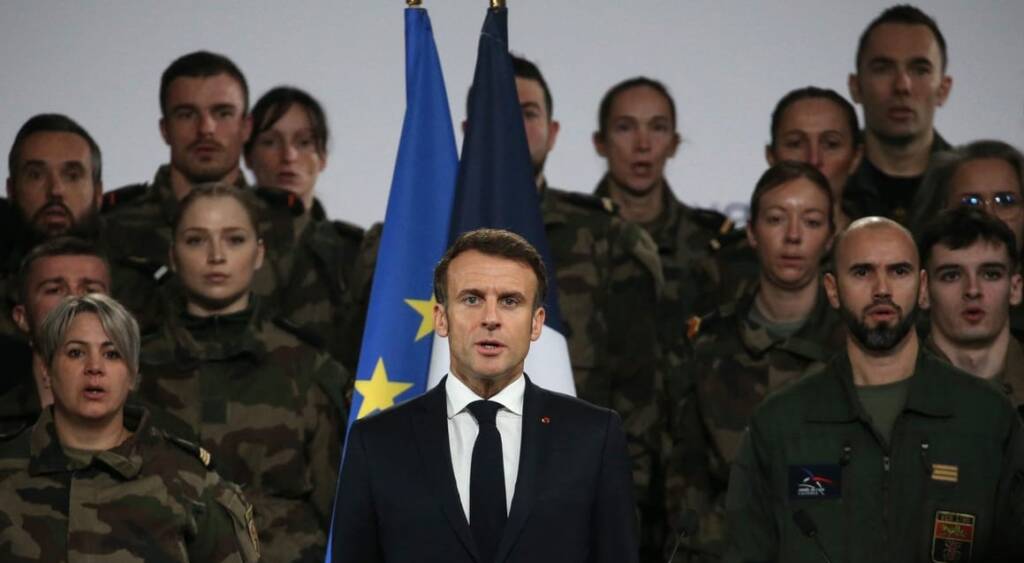France wins all wars. France defeated Germany in both world wars and France drove out Russians from Africa. Hence France’s army generals are now challenging Moscow for a one on one.
In a recent development, France has shown an increased willingness to confront potential large-scale conflicts. This readiness was articulated by a high-ranking French military officer, General Pierre Schill, the chief of staff of the French Army, during an interview. He emphasized that the French armed forces are “prepared” for any possible war scenario in Europe. General Schill’s remarks come at a time when tensions are high, particularly with the situation in Ukraine, making his statements super provocative.
Join us on Telegram: https://t.me/tfiglobal
General Schill underscored the French military’s readiness for potential escalation, emphasizing the necessity of fulfilling international responsibilities as defined by treaties. He criticized the reliance on nuclear deterrence, deeming it insufficient for smaller-scale conflicts. Instead, Schill advocates for enhancing inter-operational capacities with allies, indicating a strategic shift towards more integrated military preparedness. Furthermore, Schill’s statements come at a time of heightened tensions, particularly with the situation in Ukraine, raising concerns about France’s potential direct involvement in hostilities. He asserts that French forces are prepared to defend national interests at any moment, advocating a comprehensive approach to readiness beyond nuclear capabilities.
General Pierre Schill’s statements regarding France’s military readiness have stirred significant discussion, initially appearing as a strong endorsement of the country’s defense capabilities. Yet, the broader context of his comments reveals a more profound intention than merely boosting morale or engaging in propaganda. Schill’s remarks align closely with the increasingly assertive stance of French President Emmanuel Macron on the conflict in Ukraine. Macron’s rhetoric has notably hardened, with the French leader not dismissing the potential involvement of French troops in Ukraine and emphasizing the importance of a Ukrainian victory for France’s interests.
Read More: France Set to Deploy Troops to Ukraine – Russia’s Chief Spy
President Macron’s position has evolved amid the realization that the strategy of providing weapons and financial support may not suffice to deter Russian aggression. This has led to a growing debate over the direct deployment of French forces. Although Macron has presented a façade of reluctance, suggesting no immediate plans for such an action, ambiguities in his statements have not quelled speculation about France’s potential involvement.
Russian intelligence claims, albeit unverified, have added fuel to the fire, alleging that France has prepared a contingent of at least two thousand soldiers for possible deployment in Ukraine, specifically to counter Russian advances in strategically crucial areas like Odessa.
While the French government officially denies these plans, Macron’s unwavering stance against Russia and the implied military readiness voiced by General Schill suggest a tense and precarious situation, keeping the prospect of direct military engagement on the table.
The contemplation of deploying Western troops, specifically French forces, to Ukraine carries grave implications, edging towards a direct confrontation with the Russian Federation. Such an action would not only mark French soldiers and equipment as legitimate targets but also significantly escalate tensions, potentially spiraling into a situation with nuclear ramifications.
There are reasons, however, to approach General Pierre Schill’s assertive declarations with a degree of skepticism. The claim of France’s readiness for a protracted conflict on European soil is met with doubts, considering the broadly acknowledged military dominance of Russia. The consensus among experts suggests that no European nation, France included, currently possesses the military infrastructure or readiness to sustain an all-out confrontation with Russia.
Read More: France and UK Vs Germany battle is OFFICIALLY ON
Schill’s statements may well be strategic posturing, aimed at deterring Russian aggression and bolstering French national spirit rather than a genuine reflection of France’s combat readiness. This rhetoric could serve as a calculated bluff, provoking Russia into actions that would justify increased militarization on France’s part. Furthermore, the strategy might involve psychological operations and the creation of deceptive incidents to legitimate military engagements, assuming that it would provoke a reactive stance from Moscow. However, such expectations underestimate Russia’s historical tendency towards caution and diplomacy, making the likelihood of a reactionary Russian response uncertain.
The French leadership must navigate their narratives with caution to avoid misconceptions about their preparedness and the reality of the Russian threat. Amidst rising bellicosity, there’s a risk that Paris could overestimate its readiness for war, potentially initiating actions that could severely compromise the security of the continent.
